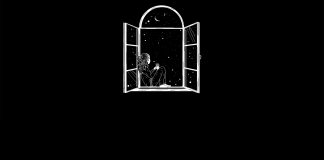There is no hell
“You’re going to hell!” The words dripped with a violence, barely contained. “Repent of your wickedness,” a voice called again from the middle of a mob holding placards. I didn’t appreciate these words being directed at my wife and me.
Never enough: an imperfect article on perfectionism
The end of the line for Christian perfectionism is not perfection, but atheism. This is because what we imagine to be the constant unsatisfied look of God upon us, is a burden too heavy for any human to bear.
What organic labels do and don’t say
The production of organic food has gained increasing importance worldwide, driven largely by consumer concerns over the potential negative health effects of foods grown through intensive, conventional farming methods (Brantsæter, Ydersbond et al. 2017).
Single parents and children’s religious education
Is it possible, as single parents, to instil in our children a love for God and for the church?
One taken and the other left
Some people who have avoided death in a plane crash by missing a flight, whether through being delayed or being denied boarding, say with great conviction: "God was with me." But for those who seek comprehensive explanations for such things, the obvious question is: why was God with them and not with those who perished?
The culture of disasters
Over the last 25 years, the relationship between theology and natural disasters has undergone intense scrutiny, with its consequences becoming increasingly apparent as disasters have remained a key public interest.
How much are we worth as human beings?
Each day we are confronted with situations that make us wonder how human life can have such a low value in the eyes of some of our contemporaries—those contemporaries who live in freedom and (at least feigned) democracy, who are educated and socialised in the same civilisation as ours, often even in the same community or under similar civil laws and with broadly...
From cold season’s greetings to the Good News
Holiday greetings are a nice custom, but they are also an opportunity to assess how much we care about each other, how much we have grown closer or, on the contrary, how much we have grown apart over the past year.
Contemporary with Passion Week
In the frenzy that grips most Christians at this time of year, the coverage of Easter celebrations in the press is a good indication of how people prepare for Easter.
Great expectations in friendship
How can we protect ourselves against expecting too much of our friendships? Can we do something to prepare for the disappointment? And what does one do to deal with it?
The mystery of the seventh day (II)—from Abraham to Paul
In this second article in a series of three, we continue our analysis of three major anti-Sabbatarian arguments. The series will conclude with an assessment of Jesus' practice and teaching on the Sabbath.
Simeon and Anna: From waiting to fulfilment
Some expectations dissolve into routine or turn into despair, while others invigorate life. The former are measured in deeds and desires, while the latter are measured in faithfulness and beliefs.
Difficult conversations | How do we talk about death with our children?
Talking to your children about death can be an act of love. You can't take away their pain with a simple conversation, but you can give them something just as important: truth wrapped in gentleness, the reassurance and relief that they are not alone in their grief, and even the hope that sees beyond the loss.
“Having a child solves all a couple’s problems.” True or false?
"Once upon a time, there was a princess as beautiful and kind as a fairy. She was an only child and her parents loved her dearly and did everything for her. When she grew up, they gave her a magnificent wedding to the brave man she had chosen, a handsome and virtuous fellow. After a while, misfortune struck: not a day would pass...
I think critically, therefore I exist
We live surrounded by words—spoken with confidence, written with authority, and shared at astonishing speed. Yet behind many of them lie confusion, prejudice, and unexamined assumptions. From everyday conversations to public decisions, gaps in reasoning and expression reveal something deeper than mere slips of the tongue: they expose deficiencies in education. In such a climate, critical thinking is no luxury; it is a...


























